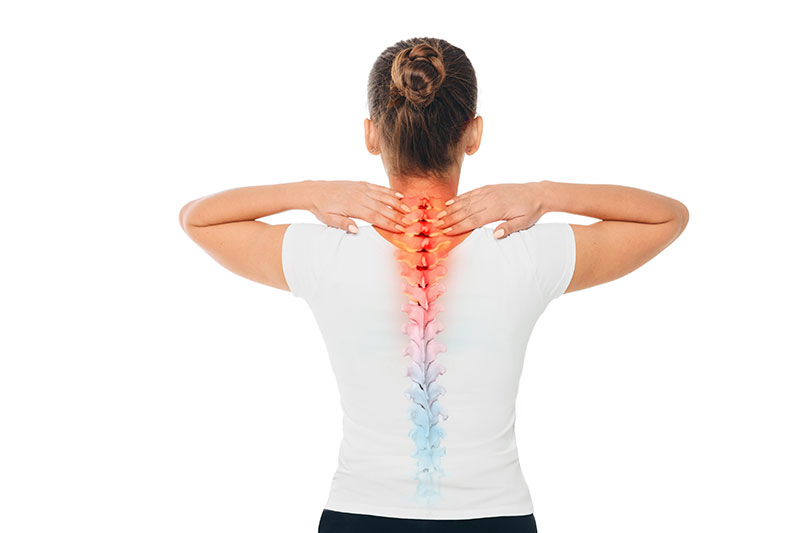Spine Conditions
Disc Disease
Disc disease, also known as herniated or slipped disc, is a common condition that affects the spine. It occurs when the soft material inside a spinal disc pushes out through a crack in the outer layer. This can cause pain, numbness, or weakness in the back or limbs. Disc disease can affect anyone, but it is most common in people aged 35 to 55 years.

Symptoms
The symptoms of disc disease depend on the location of the herniated disc and the severity of the injury. Common symptoms include:
- Back pain: This is the most common symptom of disk disease. The pain can range from a dull ache to a sharp, shooting pain.
- Numbness or tingling: This can occur in the arms, legs, or buttocks.
- Weakness: This can also occur in the arms, legs, or buttocks. It can make it difficult to lift or hold objects, walk, or even stand.
- Sciatica: This is a condition in which the sciatic nerve, which runs from the lower back down the legs, is compressed or irritated. It can cause pain, numbness, or tingling in the legs.
Causes
Disc disease is caused by the wear and tear of the spinal discs. Over time, the discs can become less flexible and more prone to injury. This can cause the discs to crack or tear, leading to a herniation. Other factors that can increase the risk of developing disc disease include:
- Age: The risk of developing disk disease increases as you age.
- Genetics: Some people are more prone to developing disk disease due to their genes.
- Lifestyle factors: Smoking, being overweight, and having a sedentary lifestyle can increase the risk of developing disk disease.
- Trauma: A sudden injury, such as a fall or car accident, can also cause disk disease.

